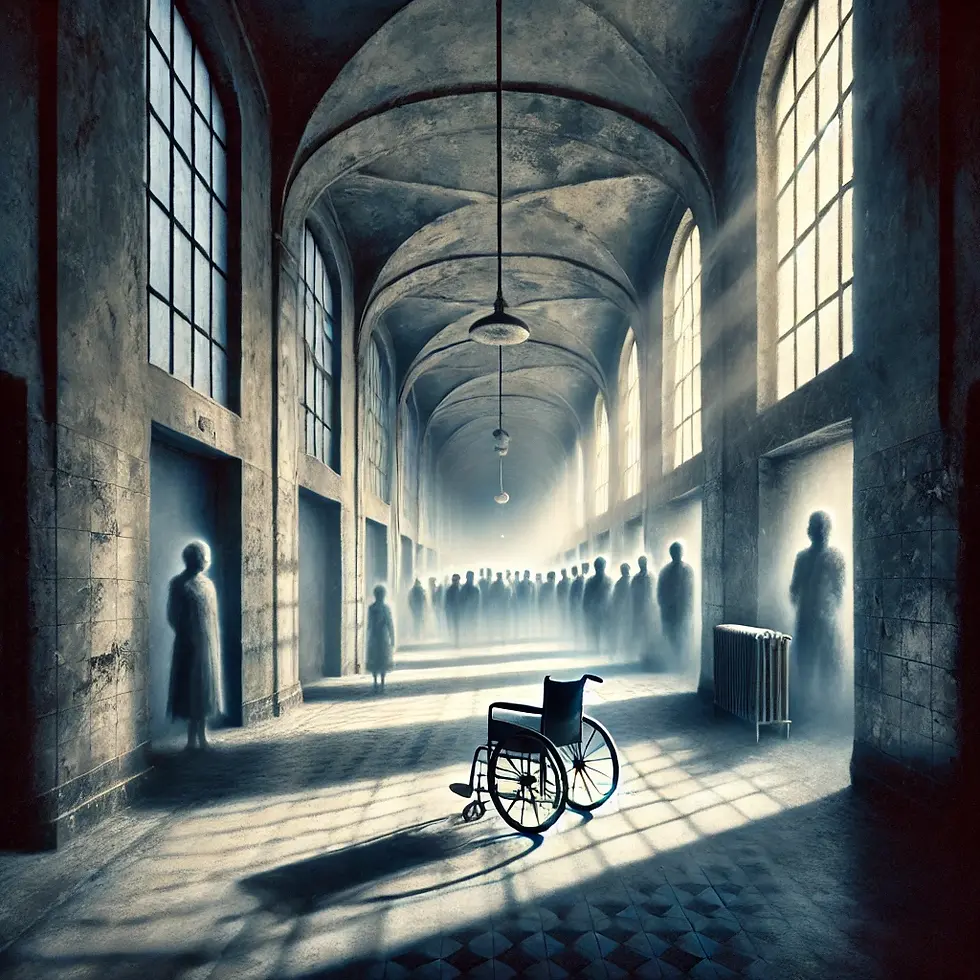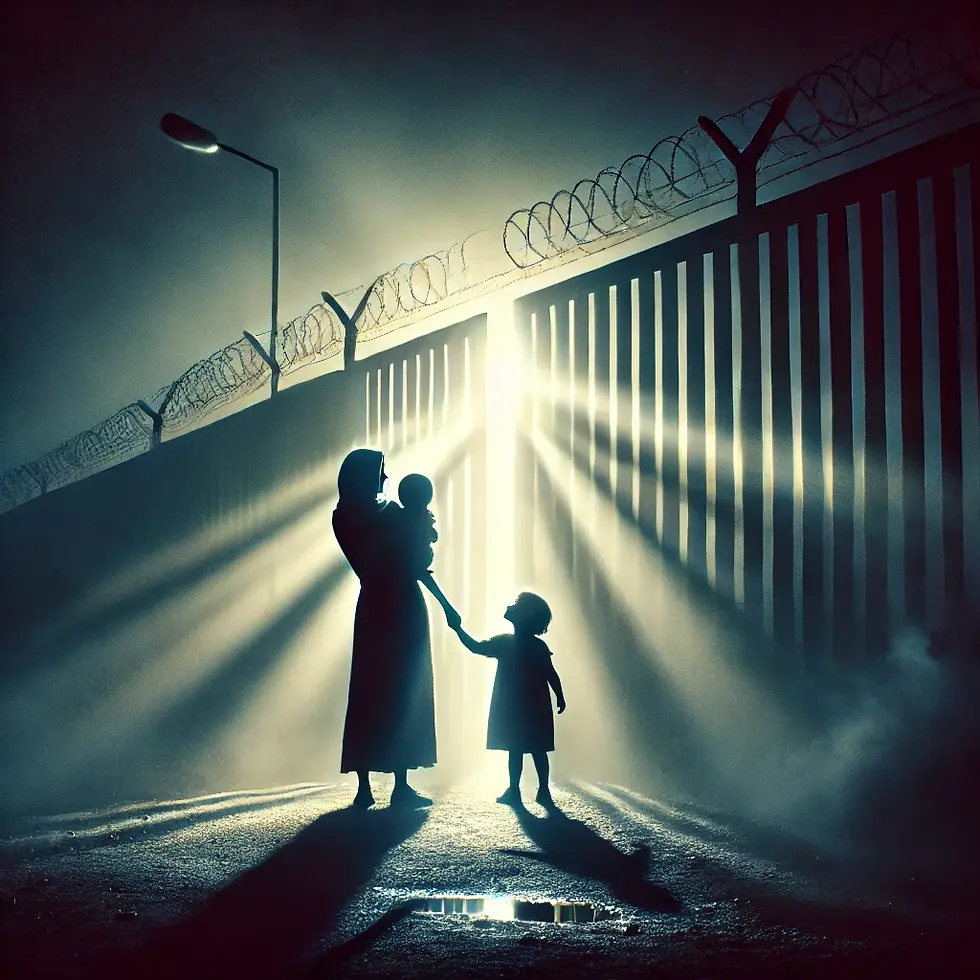Survival is Not a Fairytale: Ruth Klüger’s Still Alive and the Truth About Memory
- A HumanKind

- Mar 13
- 5 min read
Updated: Mar 17
Survival was never a triumph, and memory is not a safe place—truth lingers where the world tries to forget.
We like to tell stories about survival.
We shape them into fairytales—terrible, yes, but with a redemptive arc. We speak of resilience, of the indomitable human spirit, of triumph over darkness. We want to believe that those who lived had a reason to survive.
But Ruth Klüger refuses to tell the story that way.
She does not comfort. She does not forgive. She does not allow us to believe that the Holocaust can be understood.
In Still Alive, she dismantles the illusions we build around suffering, showing a past that was brutal, senseless, and above all, indifferent. All of the following quotes are from her book.
Survival was not a miracle. It was an accident. And memory? Memory is not sacred.
It is fought over.
It is stolen.
And sometimes, it is a wound that will never close.
I. The Myth of Survival
Survival is often framed as an achievement, a testament to human willpower. But Klüger rejects this comforting idea.
"It is dangerous nonsense to believe that anyone contributed much to her own survival."
She was a child when she was deported—first to Theresienstadt, then Auschwitz, then Christianstadt, then Groß-Rosen.
She saw people drop dead mid-step and others trampled over their bodies because stopping meant risking your own life. She saw children disappear first because they could not work. She saw hunger that made people eat from latrines, made them forget dignity, made them forget themselves.
She survived—not because she was stronger, but because, on the right day, she was lucky.
One guard overlooked her. One moment passed without her name being on a list.
She lived while millions—millions just as deserving—did not.
And yet, survivors are asked to be grateful. To be inspiring. To serve as proof that, in the end, goodness prevails.
"Why should I be grateful that I was spared, when others were not? And why should I thank the world, when it was the world that did this to us?"
Her anger is unsettling. Because it forces us to ask: Why do we expect victims to make us feel better?
II. Liberation Was Not Freedom
The word liberation suggests an ending. A moment where suffering stops, where relief takes its place. But Klüger exposes this idea as another lie.
When the war ended, there was nowhere to go.
Liberation meant being at the mercy of men in uniforms once again—this time, the Soviet soldiers, who saw Jewish women not as victims, but as prizes.
Liberation meant walking through bombed-out cities where nobody wanted to see them, nobody wanted to hear their stories.
"People who had not been there didn’t want to hear about it."
To be free did not mean to be safe. To survive did not mean to be wanted.
And years later, at a dinner party in America, she would sit across from a man who proved just how little the world had truly seen.
An American pilot, reminiscing about the war.
Not about the bombs he had dropped. Not about the cities he had flown over.
But about the death march he had once seen from his cockpit.
He told the table about the prisoners—thin, staggering figures, trudging through the snow. And then, he told them about one man who ran.
One prisoner who broke away, sprinting across an open field, desperate for freedom.
And what did the pilot do?
He dipped the wings of his plane, a playful gesture from above.
"He thought it was a good story. A funny anecdote to share over dinner. He did not see the terror on that man's face, did not hear the gunshots that likely followed. To him, we were just part of the landscape."
Even decades later, the weight of being unseen did not lift.
The world had watched. And it had done nothing.
III. The Betrayal of Language
Words do more than describe. They shape what we remember. They determine what we choose to ignore.
The Nazis called it resettlement. They called mass murder special treatment. Auschwitz was labeled a labor camp, as if work was the goal rather than extinction.
Even after the war, language remained a shield. It softened the past, made it easier to digest.
"The death camps seem easier to comprehend if we put them all into the basket of one vast generalization, which the term 'death camps' implies, but in the process we mythologize or trivialize them."
A single word can blur the truth. A euphemism can smooth over horror.
And Klüger does not allow this.
She reminds us that each camp was different, that each death was distinct, that no language should make suffering easier to bear.
"Selection sounds so neutral, almost positive, as if you were selecting apples at a market. But in Auschwitz, 'selection' meant life or death."
The words must remain sharp. They must cut. Because reality did.
IV. Memory Is Not a Safe Place
"The Holocaust is a past that doesn’t pass."
Time moves forward, but history lingers. It waits. It finds ways to return.
Governments teach children about the past. They build memorials. They say never again.
But Klüger does not trust these rituals.
"Monuments are good for politicians."
They provide closure for those who need to believe history is something finished. They make the living feel righteous, as if remembering is enough.
But history does not stay behind glass. It does not remain locked in books.
It echoes in the present.
Borders still close to those fleeing war, using the same justifications that once left Jewish refugees stranded. Policies still disguise exclusion as necessity. Hatred still exists—but with new names, new disguises, new words.
"Every time a door closes on refugees, I hear the old words again: ‘We can’t take them. We have to look after our own people first.’”
Memory is not about feeling moral. It is about facing the ways we are still failing.
"The Holocaust is an event in the history of modern civilization, and as such, it is not closed."
It is not history. It is a mirror.
And when we look into it, what do we see?
V. The Truth That Hurts
Survival did not bring justice. Liberation did not erase pain. Remembrance does not guarantee prevention.
These are the truths Klüger leaves us with.
She does not offer a satisfying ending. She does not allow us to believe the past is behind us. Instead, she forces us to ask:
If the world allowed this to happen once, what makes us think it will not happen again?
Because forgetting does not happen all at once. It happens in softened language. It happens in simplified lessons. It happens when memory becomes a performance rather than a responsibility.
She does not let us forget. She does not let us look away.
The truth does not comfort. The truth does not bring peace.
But the truth is necessary.
And Ruth Klüger left us nothing less than the truth.
Ruth Klüger (1931 – 2020)
She did not write to comfort but to confront.She did not survive to inspire but to bear witness.
Her words remain—unyielding, unforgiving, unforgettable. And we should listen.
Source:
Klüger, Ruth. Still Alive: A Holocaust Girlhood Remembered. The Feminist Press, 2001



Comments